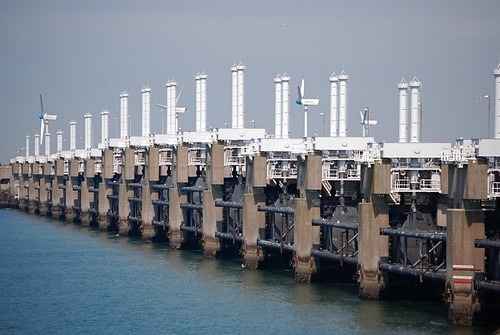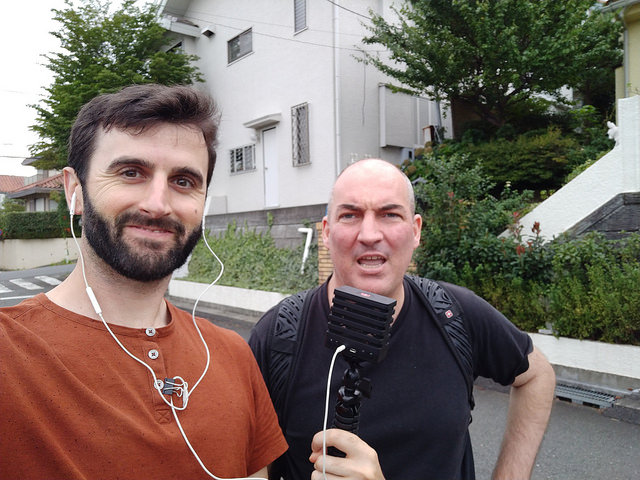In the eyes of Matthew Dons, whomever you are in this world, if you could make it over to Japan, you absolutely should be here. Why? Because Japan.
Today on the podcast, we take a long walk past the houses and trains, the fields and shrines, while looking at how things work here compared to anywhere else. There is learning but there is also a lot of laughing, mostly my own. Listen and enjoy.
Reminder also, Matthew is fighting to live longer, in a relentless battle against cancer; you can help his family afford this struggle by going to http://matthewdons.org and join the almost 900 people that have already donated.
Tag Archives: globalwarming
ctrp360 Discussing “There Once Was An Island”
 You’ve heard about the islands in the Pacific Ocean that are disappearing due to rising sea levels. But have you heard from the people there? Have you listened and watched as an entire culture faces extinction or mass displacement? Will traditions and identities survive in the face of such a crisis?
You’ve heard about the islands in the Pacific Ocean that are disappearing due to rising sea levels. But have you heard from the people there? Have you listened and watched as an entire culture faces extinction or mass displacement? Will traditions and identities survive in the face of such a crisis?
Briar March spent many months working on a film about one such island community in Papua New Guinea and looking at all these questions. The film is called “There Once Was an Island” and it presents the very real story of people who are faced with the decision to stay in their home which may soon disappear, or be re-located and start over somewhere else. She joins me for this podcast interview.
Full details about the film and film screenings are here.
You can also read the film’s blog
Busiest Town in America
 As I pushed open the big red door at the back of a very average looking church, I made my way quickly up the stairs to avoid questions from security or random people in the hallway. Several steps and doors later, I see the sign I’ve been looking for: HacDC, Washington DC’s first hacker space. As I reach for the door I picture a huge room with computer parts everywhere, funny robots designed by creative minds, and a few people hanging out on a Thursday afternoon typing away on their laptops. But after attempting to push he doors opened and knocking, it became obvious not only that the place was locked, but that no one was home.
As I pushed open the big red door at the back of a very average looking church, I made my way quickly up the stairs to avoid questions from security or random people in the hallway. Several steps and doors later, I see the sign I’ve been looking for: HacDC, Washington DC’s first hacker space. As I reach for the door I picture a huge room with computer parts everywhere, funny robots designed by creative minds, and a few people hanging out on a Thursday afternoon typing away on their laptops. But after attempting to push he doors opened and knocking, it became obvious not only that the place was locked, but that no one was home.
A text message from my friend from HacDC: I’ll be right there.
Rushing over from his job, he’s glad to see us and unlocks the doors, turning on the lights and revealing a good sized room with a long table, and indeed, plenty of computer and machine parts scattered in different corners of the place. He explains to us what usually happens on the average week at HacDC and that there aren’t typically people hanging around working on projects during the day. “We don’t have students, unemployed or self-employed people like you might see at other hacker spaces in the US or in Europe. Here in DC all our people are very busy with their jobs and they don’t hang out much unless for a specific event.”
I thought about those words and what I had seen of the DC world over the few days I was in town. As someone who visits here only every other year for the past decade, I’ve long noticed that people in this town are among the busiest people I know. Even when they’re relaxing in a café or chatting at a party late at night, they’re talking about what they are busy with during the day. A pretty big different from other cities I know where people work as freelancers or consultants and take time during the week to do something completely different or simply relax in the middle of the day.
While I watch all the busy Washingtonians getting on the metro with their heads already buried in their smart phones, I think about the Climate Change Conference going on in Copenhagen at that very moment. Here we sit on a comfortable and efficient metro system, while out the window I can see traffic jams and parking lots. Hardly any of my good friends in DC have cars, and if you ask them about the Climate Conference, they’re concerned and quite informed. But as I watch everyone inside and outside the train, busy in their hectic work worlds that seem so demanding, Copenhagen and climate change seem pretty far away.
Writing this several days later, I now know about the “deal” world leaders reached at Copenhagen. Naturally, opinions on what the results are worth, vary. The critical and experienced voices on the ground at the conference are talking about the deal as coming up well short of what is needed to stave off the severe effects of climate change in the near future. We needed a strong and comprehensive deal, that goes for those us on the metro in Washington or those working the fields in Thailand, but our leaders came back with something less than what we needed.
Lot’s of reasons can be and are being listed to explain why they came up short in Copenhagen. Myself I think back to my Washington visit, and all those busy people. Surely I don’t know everyone’s story and I can’t know what they’re really worried about. But when it comes to the Climate Conference of 2009, like many places around the world, the nation’s capital that I observed seemed to have its focus elsewhere.
bm291 Climate Change and The Age of Stupid
He has traveled around the world showing the Al Gore film and speaking about climate change. But Stuart Scott isn’t satisfied with the results and he’s got a new task in his climate change education mission. After a disappointing conference in Poland, Stuart explains how the governments of the world are still thinking small, and how -in the tradition of An Inconvenient Truth-, this next film will mobilize people.
The Film: The Age of Stupid
Some Nations Plan
While my specialty is critical thinking, especially when it comes to global issues; sometimes nations do things that I both agree with and am impressed by.

The Netherlands is working on something I believe is very logical and necessary — planning how to manage rising sea levels and global warming in the coming 100 years. They’ve planned in the past (1950’s) to manage the sea and their bodies of water in such a way that people are safe and can also enjoy the fruits of their water.? But as has become very apparent, the plans made 50 years ago are insufficient when you consider what we know now about the increasing speed that these changes take place. So instead of waiting for a major disaster, they’re devising a plan and dedicating big money to preparing NOW.
For the real details I recommend mr. Amsterdamize himself, who does a good job of laying out, in understandable terms, what the government is doing so far and what the ultimate outcome will be. Like myself, I think Marc finds it a strange contrast, going from watching the news about the gulf coast of the US scrambling to get out of the way of storms to reading about the Dutch government, planning for any storms or water disasters in the next 100 years.
Culturally Inept
Whenever I come back to NJ, I expect to see changes. Not so much people, as of course there are always changes there, but I’m speaking more about changes to this place; suburban NJ, the suburbs of New York City and Newark. I expect to see some new buildings, new construction projects, and generally speaking.. signs of a new era… new ideas… the future. Among those changes for the new era, I keep a close eye out for developments related to energy conservation, pollution, and sustainable living.
As is typical for much of the US, this region is especially a hub for car culture. You can hardly do anything without an automobile, so while in Amsterdam it seems that everyone rides a bike, in New Jersey it seems that everyone drives a car.
Every year I return and end up, naturally, in a car on a highway. This year it is no different, but considering the fact that global warming has finally reached the mass audience and seemingly has been accepted as a problem, I expected to see some changes. Smaller cars perhaps. More of those hybrids people talk about. Less people driving or at the very least, less cars with only 1 person in them. In each of these cases, besides the occasional hybrid, I’ve seen almost none of these things. Just like 7 years ago, back when I still lived here and global warming was a myth, there is nothing but cars and traffic jams. If anything they’ve gotten worse, more cars leading to traffic jams all over this state at any given time of day.
As I visit people’s houses and walk the streets, I look for signs of energy conservation. Solar panels? I guess that was wishful thinking; there are none. More people turning off lights and turning down the heat? No one seems to mention it or think about it. Plenty of those little flourenscent bulbs, that is about the extent of the energy saving practices I see adopted.
At any shop you find lots of green labels and references to all-natural, clearly people want to feel better about their choices and actions. But seeing the amount people here consume; whether its goods or energy, despite everything they know about their impact on the planet… none of it has slowed down. If anything, this state, like much of the world, seems to be marching even more quickly towards environmental holocaust.
